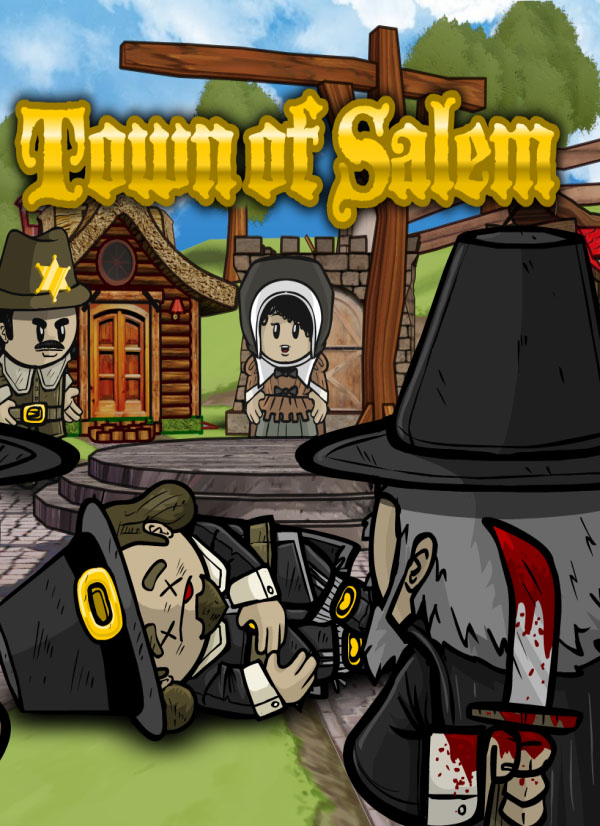Critical Play of Town of Salem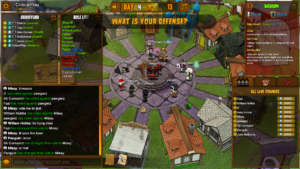
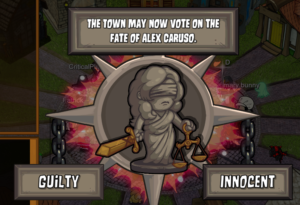
In the deception game Town of Salem (a popular mobile and web version of Mafia), players assume roles of town and mafia trying to eliminate each other.
The game incorporates fun as fellowship and fantasy. To achieve this, the game creates moments of deduction and theatricality in its formal elements. For example, the deduction gameplay arises from players being divided into an uninformed majority (town) and an informed minority (mafia). A clear town vs. mafia outcome means that newer players can figure out their objective and jump right into the conversation. And as players (resources with unique abilities) on either team get killed off, more and more opportunities for deduction and bluffing arise.
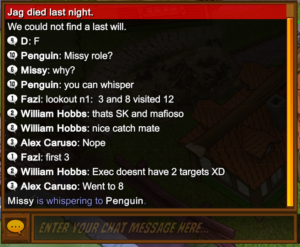
But as with many deception games, much of the enjoyment emerges from the game’s rules and procedures. We start with much fanfare as a roulette wheel decides which role we’re playing.
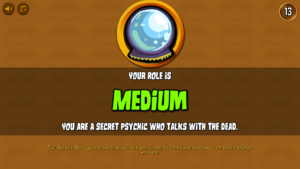
I got Medium, which means I can talk with players who have died. This is just one role, but already we see fun as fellowship: eliminated players can keep adding to the investigation through the Medium. After I was killed by a Mafia member, a dead player told me to “Seance”: contact a living player on behalf of the dead and potentially sway the game.
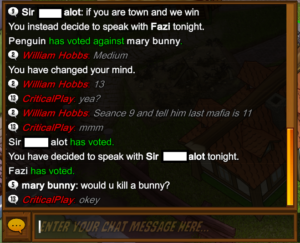
Roles like this build in fun as fantasy, opportunities to make-believe. The witch trial setting is further characterized by humorous death animations and a wide range of customizability. The game provides ample moments for creative characters to monologue (e.g., delivering last words after being sentenced to death), Last Wills you can leave behind if killed and Kill Notes you can leave on your victims. All of these are potentially helpful for gameplay but usually serve more to add theatricality, stakes, and humor.
The game could be improved by further considering how to generate fellowship and fantasy. Not all roles are equally fun, with Townspeople being less powerful than the Mafia (or the neutral Serial Killer and Jester roles). And players will usually leave a game when killed early, because it’s not really that fun to be dead. Finding ways to give dead players incentive to stay, like unique powers that could sway the game would be one solution to make sure that starting a game means you’d want to finish it.


